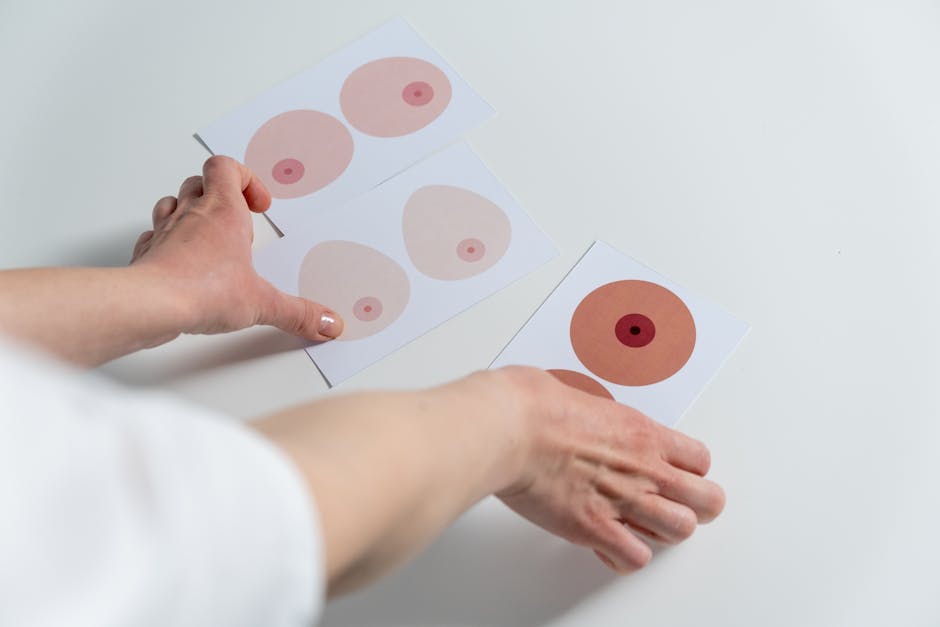Understanding Preventative Healthcare: A Comprehensive Guide
Welcome to the comprehensive guide on understanding preventative healthcare. In today’s fast-paced world, where diseases and health issues are prevalent, taking a proactive approach to healthcare is more critical than ever. Preventative healthcare focuses on preventing illnesses and diseases before they occur, rather than just treating symptoms after the fact. By understanding the principles and practices of preventative healthcare, individuals can take control of their health and well-being, leading to a higher quality of life and reducing healthcare costs in the long run.
The Importance of Preventative Healthcare

Preventative healthcare encompasses a wide range of strategies and interventions aimed at reducing the risk of developing chronic diseases, such as heart disease, diabetes, and cancer. These interventions can include lifestyle modifications, such as healthy eating, regular exercise, and avoiding smoking and excessive alcohol consumption. Additionally, preventative healthcare may involve routine screenings, vaccinations, and early detection of diseases.
One of the key benefits of preventative healthcare is the ability to detect and treat health issues at an early stage, often before symptoms appear. This early intervention can significantly improve treatment outcomes and may even prevent the development of serious health conditions. By focusing on prevention rather than treatment, individuals can avoid the need for expensive medical procedures and medications, ultimately saving money on healthcare costs.
Furthermore, preventative healthcare promotes overall health and well-being by encouraging individuals to adopt healthy habits and behaviors. By taking a proactive approach to their health, individuals can reduce their risk of developing chronic diseases and improve their quality of life. Preventative healthcare also emphasizes the importance of regular check-ups and screenings, which can help identify potential health problems before they become serious.
Benefits of Preventative Healthcare

There are numerous benefits to adopting a preventative healthcare approach, both for individuals and society as a whole. Some of the key benefits include:
1. Improved Health Outcomes
Preventative healthcare can lead to better health outcomes by identifying and treating health issues early. By addressing risk factors and making lifestyle changes, individuals can reduce their risk of developing chronic diseases and improve their overall health and well-being.
2. Cost Savings
Preventative healthcare can lead to significant cost savings by reducing the need for expensive medical treatments and procedures. By preventing the development of chronic diseases, individuals can avoid costly hospitalizations and medications, ultimately saving money on healthcare costs.
3. Increased Longevity
By focusing on prevention and early detection, individuals can increase their chances of living a longer and healthier life. Preventative healthcare can help individuals maintain their health and independence as they age, leading to a better quality of life in the long run.
4. Enhanced Quality of Life
Preventative healthcare promotes healthy habits and behaviors that can improve overall quality of life. By adopting a preventative approach to health, individuals can reduce their risk of developing chronic diseases and enjoy a higher level of well-being and vitality.
Key Principles of Preventative Healthcare

There are several key principles that underpin preventative healthcare and guide its implementation. These principles are essential for understanding how preventative healthcare works and why it is so effective in promoting health and well-being. Some of the key principles include:
1. Primary Prevention
Primary prevention focuses on preventing diseases and injuries from occurring in the first place. This can include interventions such as vaccinations, health education, and lifestyle modifications aimed at reducing the risk of developing chronic diseases.
2. Secondary Prevention
Secondary prevention involves early detection and treatment of diseases to prevent them from progressing to a more serious stage. This can include screenings, diagnostic tests, and routine check-ups to identify health issues before symptoms appear.
3. Tertiary Prevention
Tertiary prevention focuses on managing and treating existing health conditions to prevent complications and improve quality of life. This can include rehabilitation, medication management, and lifestyle modifications to help individuals with chronic diseases live healthier and more fulfilling lives.
4. Individualized Care
Preventative healthcare emphasizes the importance of individualized care and tailored interventions to meet the unique needs of each person. By taking into account a person’s risk factors, lifestyle choices, and health goals, healthcare providers can develop personalized prevention plans that are effective and sustainable.
5. Community Engagement
Preventative healthcare recognizes the role of communities in promoting health and well-being. By engaging with local organizations, schools, and businesses, preventative healthcare programs can reach a wider audience and have a greater impact on public health outcomes.
6. Health Equity
Preventative healthcare aims to address health disparities and promote health equity for all individuals. By ensuring that everyone has access to quality healthcare services and resources, preventative healthcare can help reduce the burden of disease and improve health outcomes for vulnerable populations.
Implementing Preventative Healthcare

Implementing preventative healthcare requires a multi-faceted approach that involves individuals, healthcare providers, policymakers, and communities working together to promote health and well-being. Some key strategies for implementing preventative healthcare include:
1. Health Education and Promotion
Health education plays a crucial role in preventative healthcare by providing individuals with the knowledge and skills they need to make informed decisions about their health. By promoting healthy behaviors and lifestyles, health education can help prevent the development of chronic diseases and improve overall health outcomes.
2. Routine Screenings and Check-ups
Routine screenings and check-ups are essential for early detection of health issues and prevention of chronic diseases. Healthcare providers can use screenings to identify risk factors and recommend interventions to help individuals stay healthy and avoid serious health problems.
3. Vaccinations and Immunizations
Vaccinations and immunizations are critical for preventing infectious diseases and reducing the spread of illness in the community. By ensuring that individuals are up to date on their vaccinations, healthcare providers can protect individuals and communities from potentially life-threatening diseases.
4. Lifestyle Modifications
Lifestyle modifications, such as healthy eating, regular exercise, and stress management, are essential for preventing chronic diseases and promoting overall health and well-being. By making small changes to their daily habits, individuals can improve their health outcomes and reduce their risk of developing serious health conditions.
5. Policy Changes
Policy changes at the local, state, and national levels can help promote preventative healthcare and improve access to quality healthcare services for all individuals. By advocating for policies that support prevention and early detection, policymakers can create a healthier and more equitable healthcare system.
Common Misconceptions About Preventative Healthcare
Despite the many benefits of preventative healthcare, there are several common misconceptions that may prevent individuals from taking advantage of preventative services. Some of these misconceptions include:
1. Preventative Healthcare is Expensive
While preventative healthcare may require an upfront investment, the long-term cost savings can far outweigh the initial expense. By preventing the development of chronic diseases and avoiding costly medical treatments, preventative healthcare can actually save individuals money in the long run.
2. Preventative Healthcare is Only for the Elderly
Preventative healthcare is important for individuals of all ages, not just the elderly. By adopting healthy habits and behaviors early in life, individuals can reduce their risk of developing chronic diseases and enjoy a higher quality of life as they age.
3. Preventative Healthcare is Time-Consuming
While preventative healthcare may require some time and effort, the benefits of adopting healthy habits and behaviors far outweigh the inconvenience. By making small changes to their daily routine, individuals can improve their health outcomes and enjoy a higher level of well-being.
Conclusion
In conclusion, preventative healthcare is a proactive approach to health and well-being that focuses on preventing diseases and promoting overall health. By understanding the principles and practices of preventative healthcare, individuals can take control of their health and reduce their risk of developing chronic diseases. Through education, screenings, vaccinations, and lifestyle modifications, individuals can improve their health outcomes and enjoy a higher quality of life.
By implementing preventative healthcare strategies at the individual, community, and policy levels, we can create a healthier and more equitable healthcare system that benefits everyone. It is essential that we prioritize preventative healthcare and work together to promote health and well-being for all individuals. Together, we can make a positive impact on public health and improve outcomes for future generations.
Remember, your health is your most valuable asset. Take the time to invest in preventative healthcare today for a healthier tomorrow.




